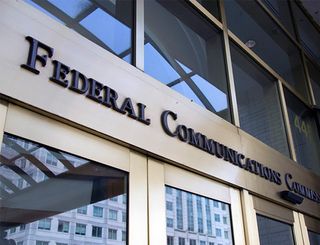Latest Pitch Paints Comcast As Auction Lure

Some broadcasters looking to take the heat off their own spectrum have come up with something novel: talking up the idea of getting Comcast/NBCU to act as a sort of giant spoonful of sugar, meant to help the incentive auction spectrum- sharing medicine go down. It would, by most accounts, not be considered the most delightful way to do business.
The proposal, which was pitched to broadcasters at the NAB show last month according to multiple sources, suggests that Comcast—which is trying to get its proposed $69 billion Time Warner Cable merger through the FCC—should offer to share spectrum in the major markets where it has a co-owned Telemundo affiliate, and give up some spectrum to the FCC’s incentive auction.
Broadcast sources confirm they were being lobbied on the issue at the show, but would not identify which broadcasters—or others— were behind the pitch.
FCC chairman Tom Wheeler has been trying to convince broadcasters that giving up spectrum would be a win-win, but major affiliate operators, including O&Os, have expressed no interest in playing along. That might change if broadcasters lose the Aereo case, since arguably the differential between their spectrum’s value and its value to wireless operators would increase after such a decision.
One broadcast executive who spends a lot of time at the FCC, but did not want to be identified, said he was familiar with “the chatter” about the proposal, which was making the rounds at the convention in Las Vegas early last month, adding it was all about appeasing a commission trying to force broadcasters into the auction via media ownership politics.
The FCC has promised, and the statute specifies, that the auctions are voluntary. But the executive says that if broadcasters have learned anything, it is that FCC rules or even public statements are often subject to change and can be “retroactively modified or ignored.”
He says that to participate in the auction, broadcasters need to know what the rules are and trust they won’t change, which he says he can’t depend on.
Broadcasting & Cable Newsletter
The smarter way to stay on top of broadcasting and cable industry. Sign up below
That’s where Comcast comes in. The pitch, according to multiple sources, is that since the government wants the spectrum and there is a party out there with spectrum in large markets, it might take the pressure off of other broadcasters if Comcast/NBCU gave up some spectrum to the FCC.
Historically, big mergers become vehicles both for deal-related conditions and for other asks by competitors, public interest groups and others looking for the opportunity to leverage the deal to their advantage—in this case, apparently, a chance to take some of the FCC heat off of other TV station owners.
But the FCC has said the auction is completely voluntary, something Wheeler and members of the Media Bureau have taken pains to stress. Even the statute says as much.
Again, the broadcast exec remains skeptical. “There is no such thing as voluntary at the FCC,” he says. “I think there is tremendous pressure on broadcasters to give up spectrum.”
That pressure, he says, comes from the FCC’s pattern of doing “anything they want” with pending transactions, many of which have yet to see the light of day. Arguably, the poster-deal for that delay is Sinclair’s proposed purchase of Allbritton stations. That said, Nexstar, Gray and others also have deals that remain stuck in neutral.
A veteran communications attorney agrees that applications aren’t moving (see “Station to Station”) and that buyers and sellers are attempting to glean what the FCC wants.
A Comcast representative was not familiar with the pitch, but said: “We’re looking at everything in the spectrum auction, but need to see what the rules are actually going to be.”
CABLE’S POLITICAL CONNECTIONS
NCC MEDIA, which sells ads for the major cable operators, satellite companies and telcos, recently held its first-ever upfront in Washington. The National Association of Broadcasters has argued that the FCC should scrutinize those collective ad sales just as they have TV station joint sales agreements; it’s no surprise that NCC begs to differ.
NCC political strategy director Tim Kay has offered the following cable spend factoids in his organization’s approach to the upfronts:
Cable programming that some political spenders have their eye on:The Walking Dead, Mad Men, home state (or home district) football and basketball games, and series on Syfy, HGTV and FX.
Cable spending has nowhere to go but up: NCC estimates cable political spending in 2014 will be $600 million to $800 million, compared to $500 million in 2012 and $450 million in the last midterm election year, 2010.
Estimated percentage of political cable spending handled through NCC: 65%.
Contributing editor John Eggerton has been an editor and/or writer on media regulation, legislation and policy for over four decades, including covering the FCC, FTC, Congress, the major media trade associations, and the federal courts. In addition to Multichannel News and Broadcasting + Cable, his work has appeared in Radio World, TV Technology, TV Fax, This Week in Consumer Electronics, Variety and the Encyclopedia Britannica.

